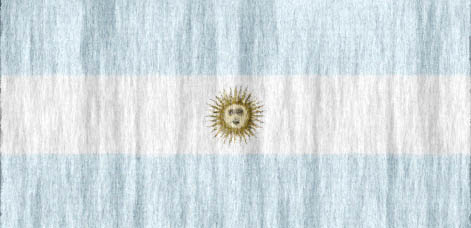AFP
The US judge presiding over Argentina’s bitter dispute with hedge-fund creditors ordered the two sides to hold new negotiations and called for an end to “mistrust” at a hearing yesterday in New York.
Argentina needs to strike a deal with the two US hedge funds, whose legal battle against its debt restructuring has blocked it from paying bondholders who agreed to take a 70% write-down after the country’s 2001 economic crisis.
It missed a $539mn payment due on Wednesday after 11th-hour talks with the hedge funds - which Buenos Aires calls “vulture funds”- failed to break the impasse.
US District Judge Thomas Griesa, who has blocked Argentina from servicing its restructured debt without also repaying the hedge funds the full $1.3bn it owes them, ordered the litigants to hold new talks.
“Let’s go back to work,” Griesa said.
He rejected Argentina’s request to change the court-appointed mediator charged with marshalling the negotiations, attorney Daniel Pollack, and called for more trust.
The Argentine government has accused Griesa and Pollack of “incompetence” and called the judge an “agent” of the two hedge funds, NML Capital and Aurelius Capital Management.
“Let’s cool down any idea of mistrust,” Griesa said.
Argentina says paying the hedge funds in full could expose it to claims for up to $100bn from “exchange creditors” who accepted a write-down but are entitled to equal treatment under what is called a Rights Upon Future Offers, or RUFO, clause.
Sources close to the case say JP Morgan and other banks are in negotiations with the hedge funds to settle the dispute by buying some or all of their bonds.
JP Morgan has declined to comment.
Argentina said before yesterday’s hearing that there was little hope the proceedings would resolve the standoff given Griesa’s approach.
“We cannot have favourable expectations because he has always had a biased view,” Argentine cabinet chief Jorge Capitanich told journalists in Buenos Aires.
Argentina denies that it is in default, since the payment in question is currently sitting in a Bank of New York account, frozen by Griesa’s ruling.
But declarations to the contrary continued to pile up in the financial world.
The International Swaps and Derivatives Association, the group governing the derivatives trade, ruled Argentina in default yesterday, triggering payments on an estimated $1bn worth of credit insurance policies.
All 15 of the members of the ISDA committee ruling on credit events agreed that it had defaulted, including Elliott Management, the parent company of NML Capital.
That came after Fitch declared Argentina in “restrictive default” on Thursday and Standard & Poor’s declared it in “selective default” on Wednesday.
Both terms indicate the country has defaulted on one or more of its financial commitments but continues to meet others.
Moody’s simply called it a “default” and lowered its outlook on Argentine bonds to “negative,” though it left its rating unchanged at “Caa1.”
NML Capital has blamed Argentina for the failure of negotiations, saying it “refused to seriously consider any (solutions), and instead chose to default.”
But Argentina complains that the creditors - which bought defaulted Argentine bonds at knockdown rates, then sued for full payment - refused to compromise, rejecting an offer that would have given them a 300% profit.
Argentine stocks continued to slide yesterday. The country’s Merval stock index was down 2.85% in afternoon trade, after plummeting 8.43% on Thursday as the repercussions of the default began to set in.
Analysts said the damage could still be controlled if the default was fleeting, but warned a lengthy standoff would deepen Argentina’s recession, fuel inflation and unemployment, and further the country’s isolation from global financial markets.
Argentina’s 2001 default on $100bn in foreign debt, the largest in history at the time, plunged the country into crisis. Rioting left 33 people dead after the government froze savings accounts to halt a run on the banks.

